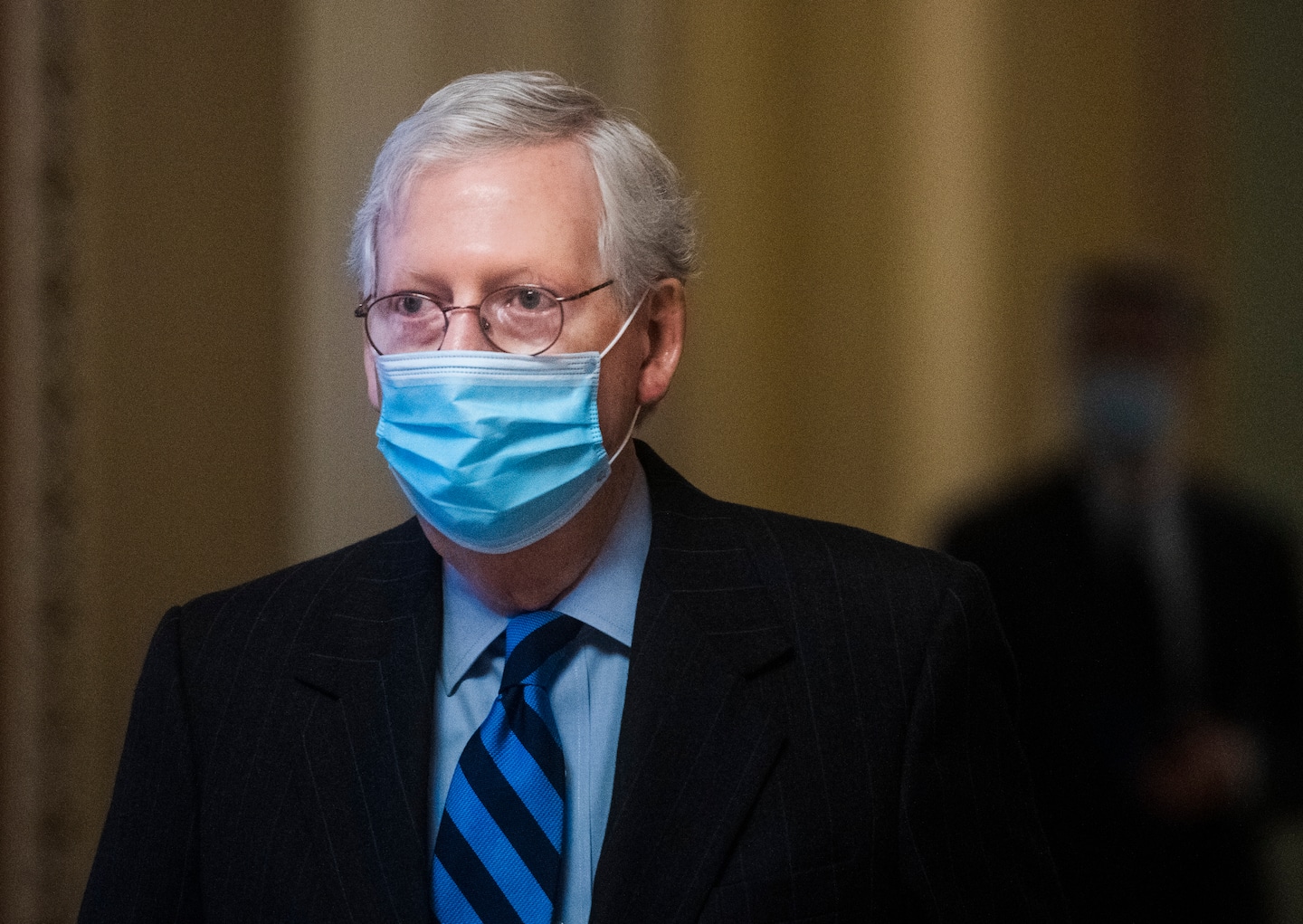Mitch McConnell, still the crucial Republican leader

As I have noted before, rule-of-law conservatives owe an enormous debt to McConnell for protecting the Constitution and its separation of powers, checks on administrative agencies and robust individual rights, particularly those of free exercise of religion, speech and property.
In 2016, McConnell refused to be railroaded by the chattering class into consenting to President Barack Obama’s filling of the Supreme Court vacancy caused by the death of Justice Antonin Scalia. Again defying liberals’ condemnation, McConnell joined with then-Senate Judiciary Chairman Charles E. Grassley (R-Iowa) in 2018 and Senate Judiciary Chairman Lindsey O. Graham (R-S.C.) in 2020 in guiding the Supreme Court nominations of Justices Brett M. Kavanaugh and Amy Coney Barrett to confirmation. McConnell has also kept a laser focus on the appointments of appeals court judges, ensuring that the Constitution’s protections of American freedoms will be preserved for decades.
McConnell is, as I have also written, the indispensable man to the GOP because of his canny, farsighted understanding of both legislative and political processes. Under McConnell’s tent, every Republican colleague will be heard and a course thrashed out. As any serious center-right conservative should, he keeps an ideologically diverse caucus together, valuing Sens. Susan Collins (Maine), Lisa Murkowski (Alaska) and Mitt Romney (Utah) as much as he does any three among the most conservative senators.
Over the coming months in a Democratic-controlled Senate, McConnell will know when to yield the 60 votes necessary to the new president’s program, and when to rally the Republican caucus to oppose excess. With National Republican Senatorial Committee Chairman Rick Scott (Fla.), McConnell will help recruit and equip candidates who can regain a GOP majority. Too often, media analysts have underestimated McConnell’s ability to win elections, most recently in November. He will head his caucus in the minority for now, but this consummate “master of the Senate” can be expected to lead the institution again, perhaps in two years’ time.
Other Republican voices will also matter a great deal, of course. On national security, soon-to-be former secretary of state Mike Pompeo and national security adviser Robert C. O’Brien will help steer the party as a whole. On domestic policy, Govs. Ron DeSantis of Florida and Doug Ducey of Arizona are examples of successful Republican governance, both in crises and in times of growth. The House is full of GOP promise: The leadership team of Minority Leader Kevin McCarthy (Calif.) and Reps. Steve Scalise (La.), Liz Cheney (Wyo.) and Tom Emmer (Minn.) will be poised to help Republicans retake the House in the 2022 midterms, if redistricting follows its historical path of favoring the party that controls the most state legislative chambers — which the GOP does, easily.
The only thing that can deeply injure the Republicans is division. And the party’s unity is essential in an increasingly unstable era at home and abroad.
“All periods of history are periods of transition, but some are more transitional than others,” wrote Lord Robert Blake in his magisterial biography of Benjamin Disraeli. Blake was referring to the years of political upheaval in Britain between the two Reform Acts of 1832 and 1867, but he could have been describing the past few decades — the past several years in particular — when the world has undergone a period of transition “more transitional than others.”
The era has seen the fall of the Soviet Union and the rise of a Chinese Communist Party with ambitions equal to any ever nursed by Vladimir Lenin. The technology revolution of the 1980s has led to Big Tech, or “surveillance capitalism,” as retired Harvard Business School professor and author Shoshana Zuboff describes the increasing menace of Silicon Valley’s unfettered and unregulated power. The rise of radical Islam remains a scourge, but now the world has witnessed Sunni Arab state reconciliation with Israel, with the potential to transform the Middle East.
McConnell and reliable Senate Republican allies, such as Sens. Tom Cotton (Ark.), John Cornyn (Tex.) and John Thune (S.D.), will have to keep the caucus focused on real enemies of freedom both foreign and domestic — and far away from the party’s fever-swamp conspiracists. Those who have admired McConnell and his masterly Senate GOP leadership while in the majority know where their trust must be placed now if they want the republic of freedom safeguarded for their grandchildren.
Watch Opinions videos:
Read more:






